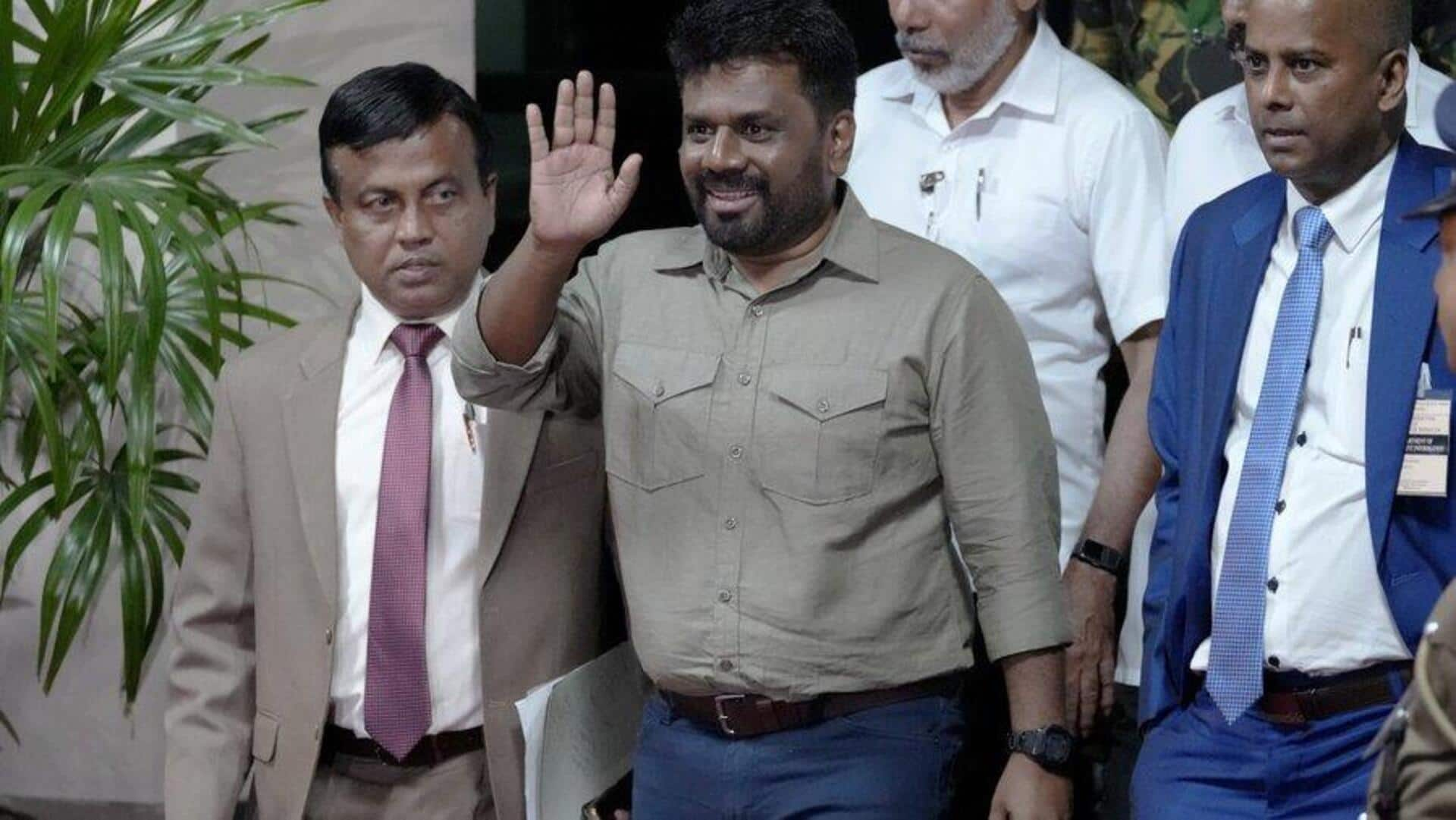
Sri Lanka's leftist ruling coalition wins parliamentary elections
What's the story
Sri Lankan President Anura Kumara Dissanayake's leftist coalition, the National People's Power (NPP), has won a landslide victory in the country's snap parliamentary elections. The NPP won 137 of the 225 seats in parliament and led in all but one of the 22 electoral districts. The victory provides Dissanayake with a strong mandate to ease austerity measures in Sri Lanka, which is facing an economic crisis.
Election results
Opposition parties trail behind in Sri Lankan elections
The opposition alliance, Samagi Jana Balawegaya (SJB), led by Sajith Premadasa, won only 35 seats. Other parties such as Ilankai Tamil Arasu Kachchi, which represents the Tamil ethnic minority, won six seats. The New Democratic Front and Sri Lanka Podujana Peramuna lagged behind with three and two seats respectively. Voter turnout for these elections was around 65%, lower than September's presidential election which had nearly an 80% turnout.
Political shift
Dissanayake's victory signifies shift in Sri Lanka's politics
Dissanayake's rise to power marks a major shift in Sri Lanka's political scene. His party's victory reached areas where ethnic Tamil parties have traditionally held sway, including the Jaffna district. As a former agriculture minister and long-time MP, Dissanayake presented himself as an outsider who could tackle Sri Lanka's financial crisis.
Recovery plans
Dissanayake's plans for Sri Lanka amid economic recovery
Dissanayake's win comes as Sri Lanka is emerging from its worst economic crisis since independence in 1948. The country defaulted on its debt in 2022 amid economic mismanagement and external shocks such as the COVID-19 pandemic and 2019 Easter bombings. Despite having criticized the International Monetary Fund (IMF) deal during his presidential campaign, Dissanayake has since expressed broad agreement with its objectives while emphasizing support for struggling Sri Lankans.
Reform agenda
Dissanayake's commitment to fight corruption and support local businesses
Dissanayake has promised to fight corruption and retrieve stolen state assets while continuing IMF-backed economic reforms started by his predecessor Ranil Wickremesinghe. He intends to cut taxes and promote local businesses as part of his reform agenda. Dissanayake called for snap elections shortly after becoming president to seek a new mandate to carry out his promises. He had stated that there was "no point continuing with a parliament that is not in line with what the people want."